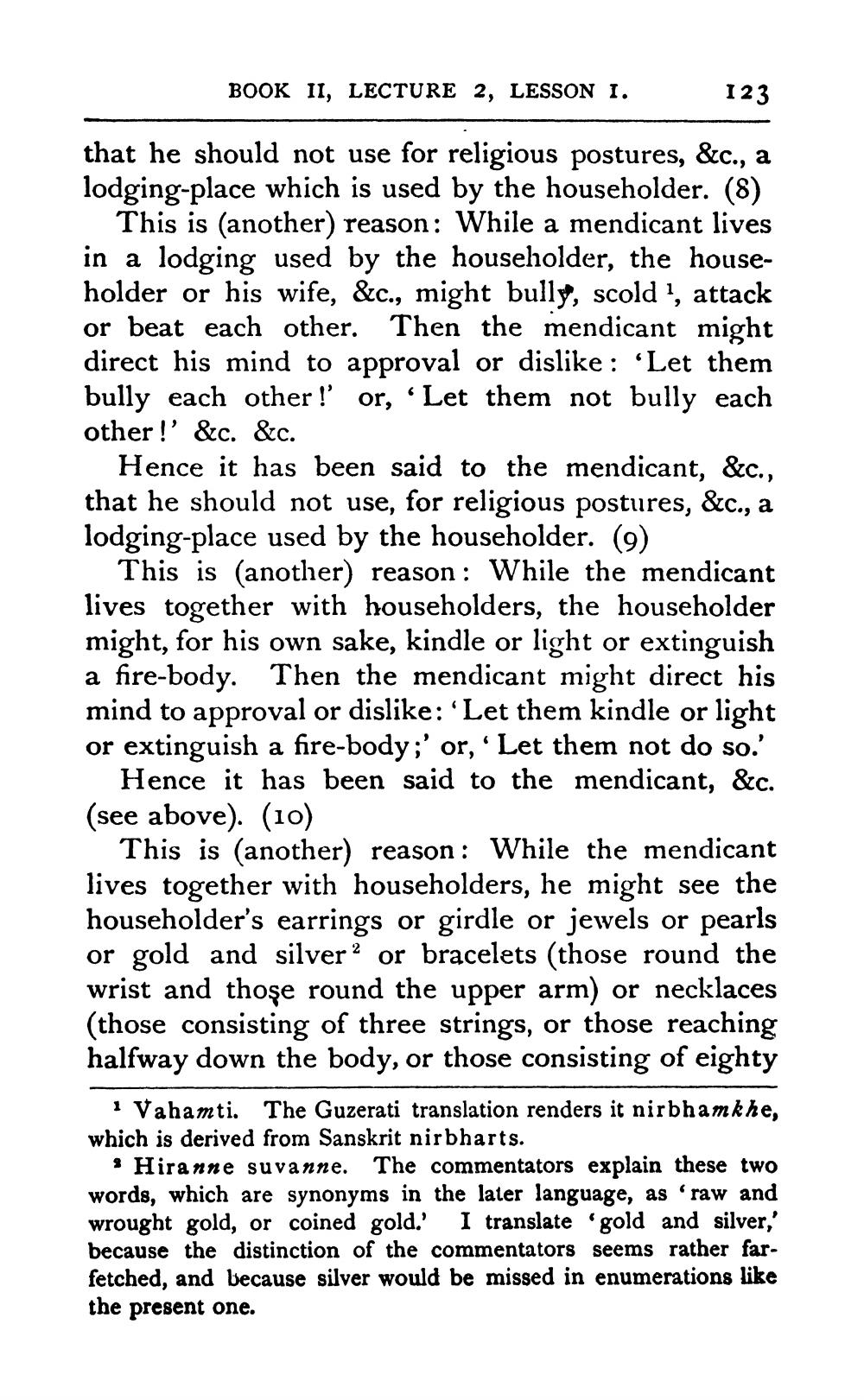________________
BOOK II, LECTURE 2, LESSON 1.
123
that he should not use for religious postures, &c., a lodging-place which is used by the householder. (8)
This is (another) reason: While a mendicant lives in a lodging used by the householder, the householder or his wife, &c., might bully, scold !, attack or beat each other. Then the mendicant might direct his mind to approval or dislike : 'Let them bully each other!' or, 'Let them not bully each other!' &c. &c.
Hence it has been said to the mendicant, &c., that he should not use, for religious postures, &c., a lodging-place used by the householder. (9)
This is another reason: While the mendicant lives together with householders, the householder might, for his own sake, kindle or light or extinguish a fire-body. Then the mendicant might direct his mind to approval or dislike: ‘Let them kindle or light or extinguish a fire-body;' or, 'Let them not do so.'
Hence it has been said to the mendicant, &c. (see above). (10)
This is (another) reason : While the mendicant lives together with householders, he might see the householder's earrings or girdle or jewels or pearls or gold and silver 2 or bracelets (those round the wrist and those round the upper arm) or necklaces (those consisting of three strings, or those reaching halfway down the body, or those consisting of eighty
1 Vahamti. The Guzerati translation renders it nirbhamkhe, which is derived from Sanskrit nirbharts.
* Hiranne suvanne. The commentators explain these two words, which are synonyms in the later language, as 'raw and wrought gold, or coined gold. I translate 'gold and silver,' because the distinction of the commentators seems rather farfetched, and because silver would be missed in enumerations like the present one.




